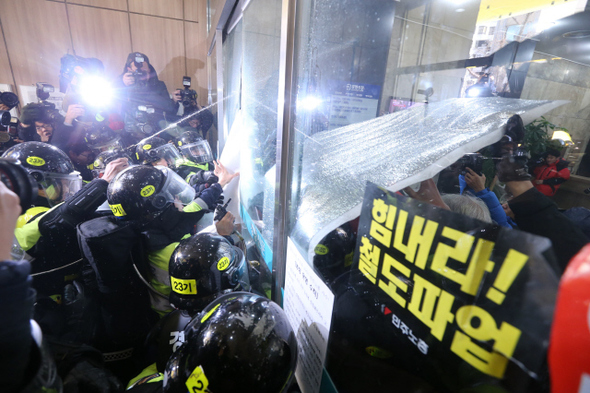 |
Police spray water mixed with tear gas as they attempt to forcibly enter the offices of the Korea Confederation of Trade Unions in the Kyunghyang newspaper building in central Seoul, Dec. 22. The police were seeking the Korean Railway Workers’ Union leadership, including union head Kim Myung-hwan, who had already fled. (by Park Jong-shik, staff photographer)
|
CONTACT US

World Clock
Sunday, December 29, 2013
[Analysis] The point of conflict in the debate over railway privatization
Subscribe to:
Post Comments (Atom)


No comments:
Post a Comment